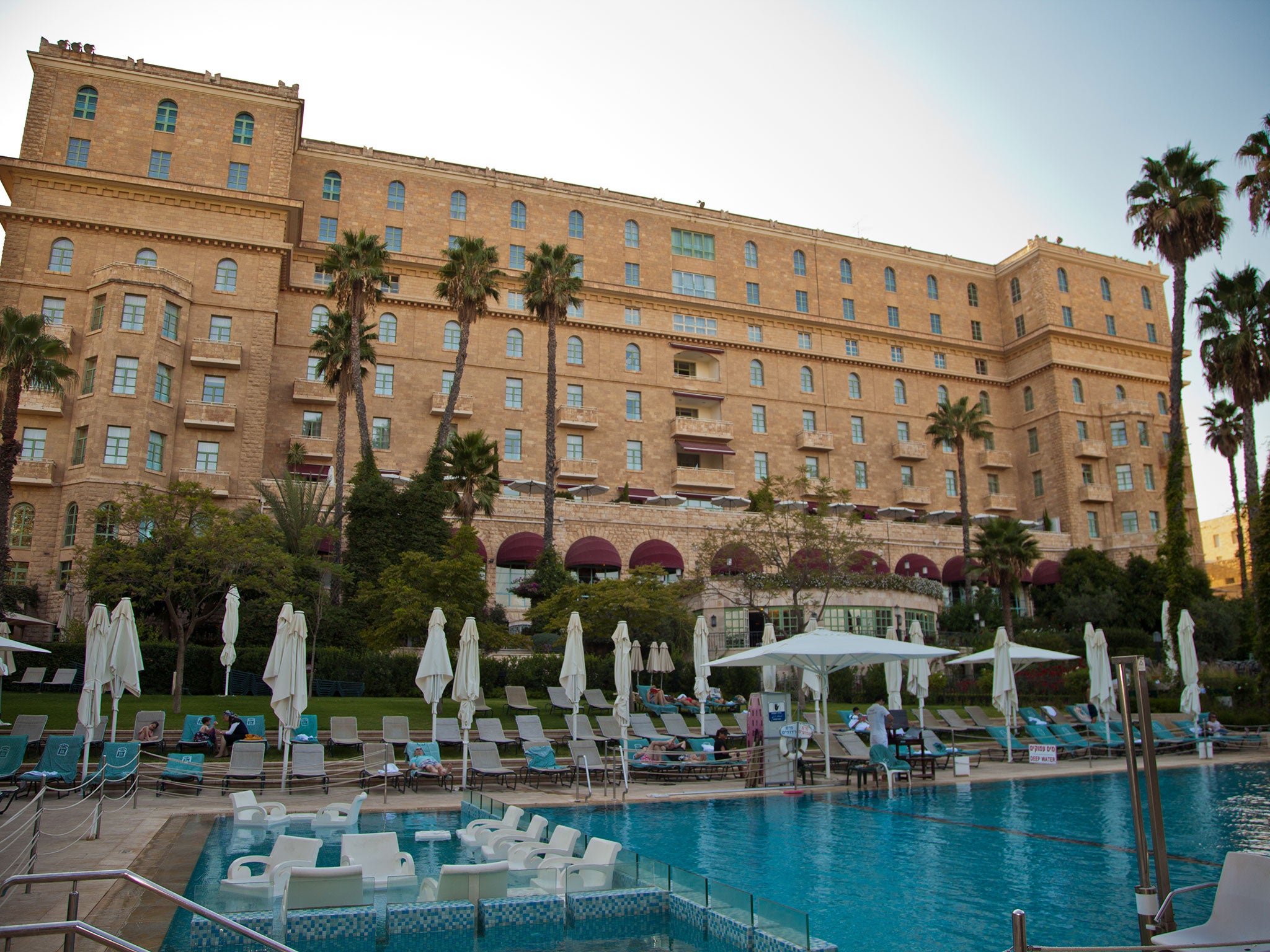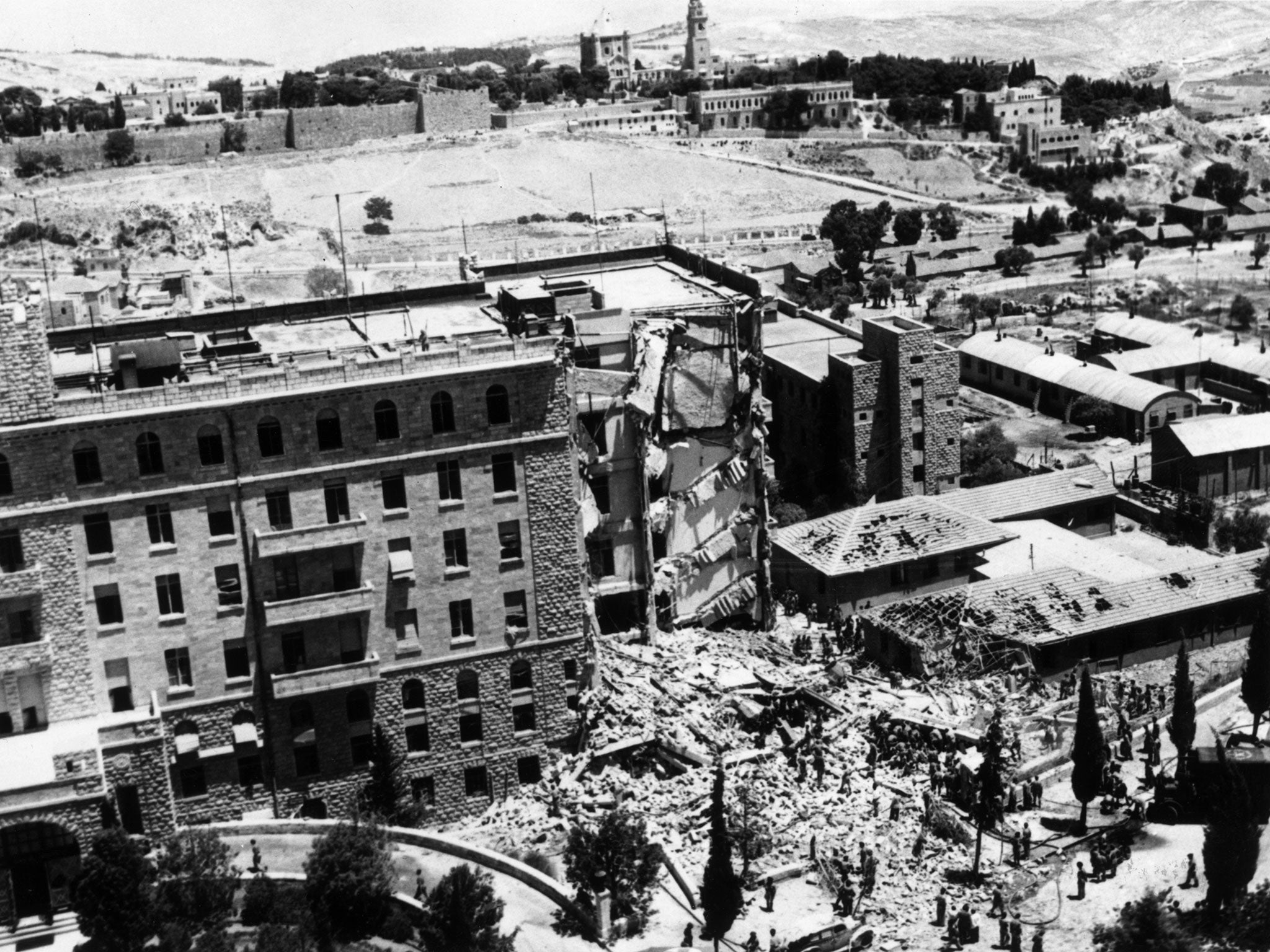The King David Hotel gives precious work to Palestinians - unless peace talks are on
The King David is special to Jerusalem. Nick Kochan checked in and discovered it has some special arrangements, too

Your support helps us to tell the story
From reproductive rights to climate change to Big Tech, The Independent is on the ground when the story is developing. Whether it's investigating the financials of Elon Musk's pro-Trump PAC or producing our latest documentary, 'The A Word', which shines a light on the American women fighting for reproductive rights, we know how important it is to parse out the facts from the messaging.
At such a critical moment in US history, we need reporters on the ground. Your donation allows us to keep sending journalists to speak to both sides of the story.
The Independent is trusted by Americans across the entire political spectrum. And unlike many other quality news outlets, we choose not to lock Americans out of our reporting and analysis with paywalls. We believe quality journalism should be available to everyone, paid for by those who can afford it.
Your support makes all the difference.The King David Hotel occupies a symbolic place in the history of Israel – from colonial outpost, to terror target, to apparent haven of normality. It's where foreign secretary Philip Hammond will hang his hat when he next comes to preach peace to the Middle East. But its very prominence also exposes the hotel to the schisms in Israel's society and politics – and these come to the surface exactly when such very important people stay at the hotel, and their advisers demand they are served exclusively by Jewish Israelis. The hotel accepts the constraints, even though the great majority of its serving staff is Palestinian Arab and they are its most loyal servants.
True, guests with so much clout and prejudice are few and far between. Still, two recent visitors who made the demands were the heads of security for Barack Obama and Vladimir Putin. They required vetted Israeli staff only to bring food to the rooms of the high-profile guests.
Despite this, the affection of the Arab staff for the hotel is undimmed. Rashid Barhoum, who has been serving breakfast there for 37 years, says with charm that "it is our local hotel and I've built my family here. There is not much work in the West Bank and this is where many men of our village come… the hotel respects us and we respect them. We don't like wars, we have suffered a lot." Rashid comes from the local Arab village of Beit Safafa, where the King David is the primary employer.
At one time, almost all the hotel's staff came from Beit Safafa; today, many also come from Arab villages on the Mount of Olives and Silwan – and their discriminatory days-off are not the only precautions against attack. Some of the King David's suites have bedrooms with bullet-proof doors, as well as bullet-proof windows and private lifts. But just to be on the safe side, when world leaders visit, the entire compliment of 233 rooms is emptied and any guests sent to local spillover hotels.
By contrast, European leaders tend to occupy a mere two or three of the top floors. (Staff say that Angela Merkel, who is a regular visitor, always stays in the most modest rooms.) Still, that leaves the best suites free for regulars – particularly Russian oligarchs and plutocratic families from South America, who have no difficulty paying £2,500 a night per head during peak season.
It's all a long way from 1946, when the King David was the scene of the region's most violent act of terrorism up to that point. The hotel was serving as the British headquarters, when a group of nationalist extremists dressed as kitchen staff – led by Menachem Begin, Israel's future prime minister – planted milk churns packed with explosives in the basement. (They claimed to have given warnings of the impending strike, but these were not heeded by the British commander.)
In the resulting carnage, 91 people died, including 28 British soldiers and staff, 41 Arabs, 17 Jews and five guests of the hotel. The impact reverberated around the world. The British turned Jerusalem into an armed camp and relations soured between the local Jewish population and their colonial masters. Two years later, the British left the country to the inhabitants.

Remarkably, the hotel survived the explosion. The grand old building, made of pink limestone from Hebron – but now missing the south-west wing – was acquired by a wealthy local Israeli family, the Federmanns, and their Dan Group of hotels, who restored it to the colonial splendour it had enjoyed on first opening in 1931. The smart guests started to return, although – with the city still divided – they had to contend with snipers on the roof.
This was to change after the Six-Day War in 1967. With the expulsion of Jordanian forces from Jerusalem, the King David prospered, in part as a result of the growing number of politicians who stayed there. Many came to hold talks about peace in the Middle East with the local Israeli government, including Margaret Thatcher, George Bush and Tony Blair.
And when they came, the hotel's Arab workers were sent home for the duration. With some hope that their small sacrifice might one day lead their families to a better life.
Join our commenting forum
Join thought-provoking conversations, follow other Independent readers and see their replies
Comments